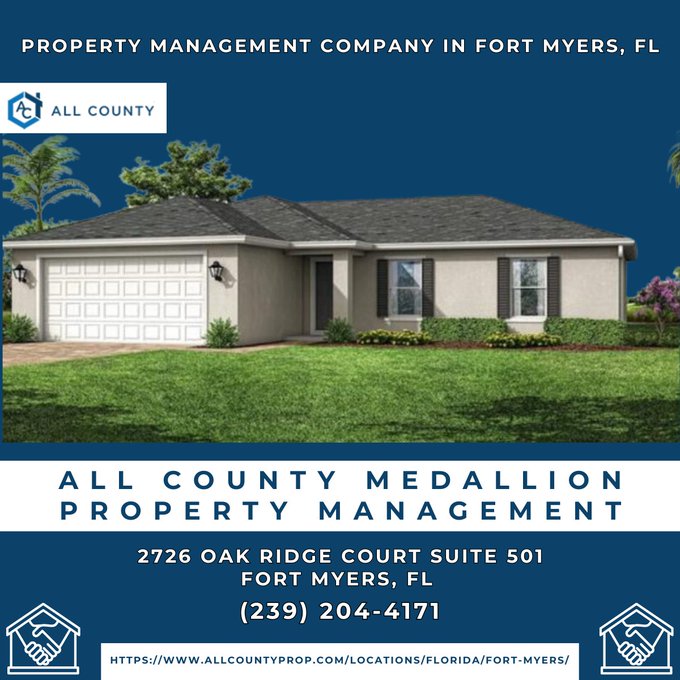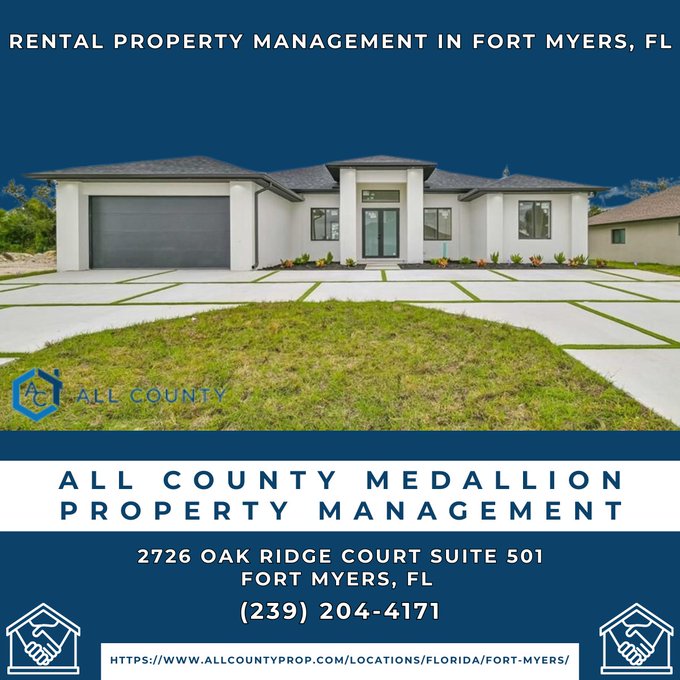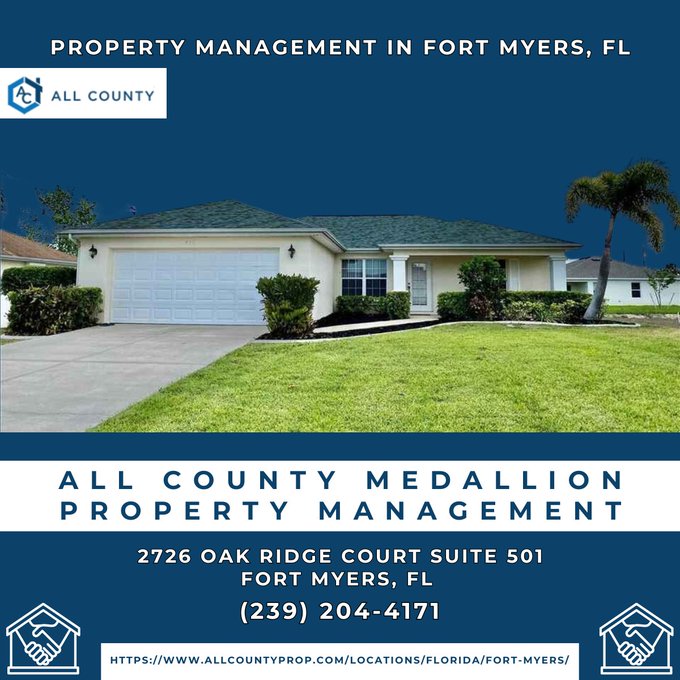The real estate landscape in Florida has undergone a notable transformation over the years, gaining momentum as more people flock to the Sunshine State. This influx of residents and investors has led to an increased demand for property managers. But what exactly is driving this rising demand? In this extensive article, we will explore various aspects concerning property management in Florida, including the costs involved, licensing requirements, responsibilities of property managers, and much more.
The Rising Demand for Property Managers in Florida: What’s Driving It?
Florida's real estate market is sizzling with activity. With a growing population and an increase in rental properties, the need for competent property managers is https://squareblogs.net/farrynjzxb/building-a-strong-network-within-the-real-estate-community-as-a-manager at an all-time high. In a state where tourism plays a significant role in the economy, many homeowners opt to rent out their properties short-term or long-term. This creates unique challenges that require skilled professionals to manage.
Understanding Property Management
Before diving deeper into the intricacies of property management in Florida, it's essential to understand what property management entails.
What is Property Management?
Property management involves overseeing residential or commercial properties on behalf of the owner. This includes handling day-to-day operations such as tenant relations, maintenance and repairs, financial reporting, and leasing activities.
Why is Effective Property Management Important?
Effective property management not only keeps the property maintained but also ensures optimal occupancy rates and financial returns. A well-managed property can significantly enhance its value over time.
Who Needs Property Management Services?
Not everyone has the time or expertise to manage their rental properties effectively. Here are some groups that often seek professional help:
- Real Estate Investors: Often own multiple properties and require assistance managing them. Out-of-State Owners: Find it challenging to handle properties from afar. Homeowners Renting Out Their Property: May lack experience in managing tenants or maintaining buildings.
What Drives Demand for Property Managers?
Understanding the drivers behind this rising demand can provide insights into current trends affecting both renters and landlords.
Increased Rental Properties
With more people moving to Florida than ever before, there’s been a boom in rental properties designed for both long-term residents and vacationers.
Tourism Influence
Florida attracts millions of tourists annually. Many homeowners rent their properties short-term through platforms like Airbnb or Vrbo, leading to a need for dedicated management services that can coordinate bookings and maintain these homes.
Complex Regulatory Environment
Navigating Florida's real estate laws can be tricky. Professional property managers are well-versed in local regulations regarding land use, tenant rights, zoning laws, and more.
Technological Advancements
The emergence of new technologies has streamlined many aspects of property management—from online payment systems to automated communication tools—making it easier for managers to run operations efficiently.
What is the Average Property Management Fee in Florida?
One question that often arises among landlords is about fees associated with hiring a property manager.
Typical Fee Structure for Property Management Services
Most companies charge between 8% to 12% of monthly rent collected as their management fee. However, additional fees may apply depending on specific services rendered:
| Service | Typical Fees | |---------------------------|-------------------------------| | Monthly Management Fee | 8% - 12% of rent | | Leasing Fee | One month’s rent (or less) | | Maintenance Coordination | Variable based on service |
These fees vary by region within Florida due to differences in market conditions.
Do I Need a License to Be a Property Manager in Florida?
The next common query revolves around licensing requirements.
Licensing Requirements Explained
In Florida, you indeed need a license if you’re going to manage rental properties on behalf of others! Specifically:
- You must hold a real estate broker’s license if managing residential properties. A real estate sales associate license might suffice if you're working under a licensed broker.
Without proper licensing, you could face significant penalties and legal issues down the line!
What is the Most Common Payment for a Property Manager?
When hiring a property manager, understanding payment structures is crucial.
Common Payment Models
The most common payment method involves percentage-based fees tied directly to monthly rental income:
Percentage-Based Payment Flat Rate Fee Commission-Based PaymentWhile percentage-based payments are prevalent due to their alignment with income levels from rentals, flat-rate payments can also be seen occasionally based on agreed-upon contract terms.
What Percent Do Most Property Management Companies Take?
Next up: how much do these companies usually take from your earnings?
Typical Percentages Charged
Most companies typically charge between 8% - 12% of the monthly rent collected. However:
- Special services like marketing or maintenance could lead to additional charges. Always read contracts thoroughly!
How Much Does Property Management Charge in the US?
To gain perspective on nationwide standards:
| State | Average Management Fee | |------------------|-----------------------| | California | 7% - 10% | | New York | 5% - 15% | | Texas | 8% - 12% | | Arizona | 6% - 10% | | Georgia | 8% - 12% |
As shown above, fees can fluctuate based on multiple factors like location and type of service offered!
Who Are The Top 10 Property Management Companies?
When selecting a company for your needs:
Greystar Real Estate Partners CBRE Group Brookfield Properties Lincoln Property Company Equity Residential AvalonBay Communities JLL (Jones Lang LaSalle) Cushman & Wakefield Related Companies Trammell Crow CompanyThese firms have built reputations across various states—including Florida—for excellence in managing diverse portfolios ranging from apartments all the way through commercial spaces!
How Much Does A Certified Property Manager Make In Florida?
A pivotal factor when considering entering this field:
Salary Expectations
According to current data:
- The average salary for certified property managers hovers around $75k per year.
However:
- Factors such as years of experience or specific certifications (like CPM—Certified Property Manager) can raise earning potential substantially!
What Company Owns The Most Rental Properties?
If you're curious about who dominates ownership within this sector:
Major Players
Companies like Invitation Homes dominate with thousands upon thousands under their control! Their business model focuses heavily on single-family rentals—a growing segment appealing especially during economic fluctuations when homeownership rates dip!
Conclusion: The Future Landscape of Property Management in Florida
As we conclude our exploration into "The Rising Demand for Property Managers in Florida: What’s Driving It?", it becomes clear that various factors play pivotal roles—from regulatory complexities down through technological advancements shaping how businesses operate today! As long as people continue moving here seeking sunshine-filled lifestyles combined alongside robust investment opportunities—property managers will remain crucial players ensuring everything runs smoothly behind-the-scenes!
FAQs Section
Do I need a license to manage my own rental property in Florida? Yes! If you're managing your own rental without representing other owners/landlords—you don't need one; however managing others’ requires licensure!
How long does it take to become a licensed property manager in Florida? Generally speaking—it may take several months depending on course completion schedules followed by an exam process!
Can I manage my own investment properties while working full-time elsewhere? Absolutely! Many do just that—however consider whether you’ll have enough time devoted towards upkeep/tenant relations before diving headfirst into investments!
Is there any ongoing training required after obtaining licensure as a PM here? Yes—continuing education courses must be completed periodically (every two years) maintaining good standing qualifications necessary keeping knowledge updated accordingly!
Why are rents so high currently throughout much of FL lately anyway?! Increased demand coupled with limited inventory drives prices upward—particularly attractive markets often allow landlords leverage raising prices beyond traditional norms observed previously too!
6. "Are there any tax implications tied specifically towards being involved within this industry?" Definitely—consulting local CPA familiarized within realm could provide insights tailored specifically around deductions available related directly towards expenses incurred managing rentals effectively!
Whether you're new looking into becoming part-and-parcel operating within realm today—or merely curious wondering what's brewing behind scenes—the ever-evolving landscape surrounding “The Rising Demand For Property Managers In Florida” remains worthy exploring further still!


